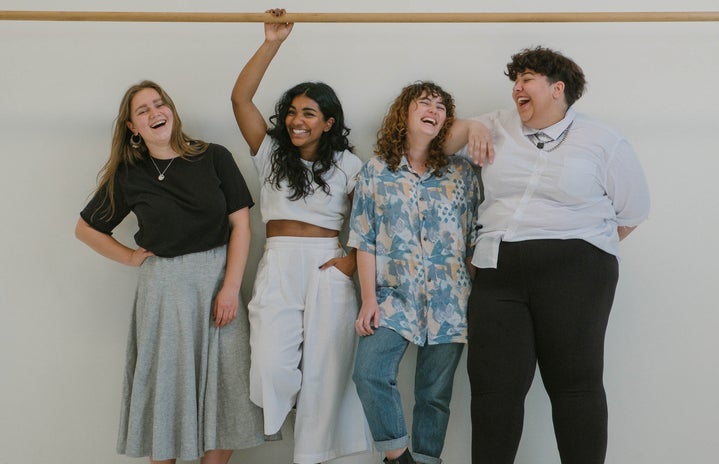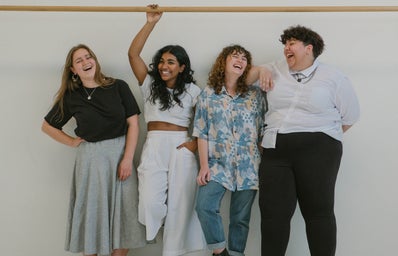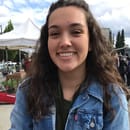Okay, so let me start off by saying I know passing is a thing and I know it allows for some people to live more privileged lives than others. I don’t want to discredit it that or make it sound like I don’t believe passing is a thing. That being said, I think it’s important we look and when and why we’re talking about passing.
The first time I heard the word “passing” was my freshman year at Seattle University. Passing is when someone can be considered to be of a different identity or community based on their appearance, which includes race, gender, sexual orientation, ability, or ethnicity. Usually, to be able to “pass” means that you may experience privileges other people in your community will not experience. For example, lighter skinned black people may have different experiences than darker skinned black people because our society has been taught to favor light-skinned people.
The thing is, “passing” has become more of an identity trait than whatever identity the person holds that allows them to “pass.” At a conference I recently attended, we were asked to add our three most salient identities to a virtual wall. Of course I saw things like, “queer,” “woman,” “cis,” and “biracial,” but I also saw a lot of “white passing,” “passing,” “straight passing.” There could be a lot of reasons why these people decided not to include their identity and instead say they’re “passing,” but this was an anonymous activity, so they could have written anything they wanted. Yet, they chose to add “passing.”
I’ve been on plenty of dates with girls where I’ve been told, “I totally wouldn’t have guessed you weren’t straight if you hadn’t asked me out,” or where I wasn’t sure if it was a date until she kissed me at the end of it, or where I got asked, “So like, is this a date?” Part of this is because of the rampant homophobia and biphobia in our culture, so that even when two people who are obviously attracted to each other are on a date, they might not know it. There are a lot of jokes about it in the queer community, and the reason they’re funny is because so many of us have lived through it. I guess you could say I’m “straight passing,” but I will never, ever, ever say that about myself or claim that as one of my identities, salient or not. The reason I could be and have been called “straight passing,” (even while I’m actively on a date with a girl, as stated in my first example), is because I don’t embody the “stereotypical bisexual.” I’m a femme woman, which, no, doesn’t mean I’m just a feminine woman. “Femme,” as Gina Tonic excellently puts it, is “a descriptor for a queer person who presents and acts in a traditionally feminine matter.” Heterosexuality is considered the default in most societies, so the fact that I’ve dated both boys and girls but have a boyfriend usually means I’m put in the “default” category. I’ve had two long-term boyfriends, but I’ve dated (a lot) more girls than boys. It’s been insinuated that I’m straight passing by three different girls. One was a lesbian and the other two were bisexual, which leads me to believe I can’t assume it’s the fact that I’m attracted to more than one gender that made these girls say this.
When I’m in Seattle, I tend to follow up “I’m Mexican” with “I’m white passing.” In January, I moved to Puebla, Mexico for three months for a study abroad program. My host mother has beautiful blue eyes, and one of my host brothers has skin paler than mine. Ibero Puebla, the school I studied at, hosts a lot of international students, so locals are used to people from other countries or from different parts of Mexico living in Puebla. Sometimes I was asked if I’m from France or Germany, but more often than not I was asked where in Mexico I’m from. When I said I’m from the States, I got a lot of, “Then why is your Spanish so good?” or “Why is your Spanish so much better than your friends’?” or “But you’re Mexican, right?” In Mexico, I’m not white passing, I’m just Mexican. And I look the part. It doesn’t matter that my eyes are hazel, that my skin isn’t super dark, or that I have an accent when I speak Spanish. When I came back to the States, I eliminated “white passing” from my vocabulary. In fact, I’ve gotten used to saying “I’m Mexican” instead of Mexican-American. I’m not white passing, I’m just not what some people think of when they think of Mexicans. I’m completely aware that if I walk into a space in the United States, I will likely have more privilege than a darker skinned Mexican, because, like I said earlier, we live in a culture that favors lighter skinned people. However, this doesn’t diminish the identities I and many other people hold.
I think we say “(blank) passing” to make people with privilege feel more comfortable about the fact that we don’t match the idea of an identity they have in their head. White passing, straight passing—it’s a concept made up by the people who decided their identities are the default and that anyone who doesn’t fit the default should be Othered. And then, after they decided this, they decided what we should look like. They’ve created a system where our identities are framed by their rules.
I know passing is a real thing that can directly impact the way people are treated related to their identity. But in certain spaces (cough, Seattle University, cough), saying you’re passing usually means you don’t look the way someone else expects you to look. We shouldn’t have to put “passing” as one of our salient identities, or even say that we’re passing. In my mind, it’s apologizing for not conforming to the stereotypes the people in power have imposed on us. You’re not passing. You’re you. Own it.



